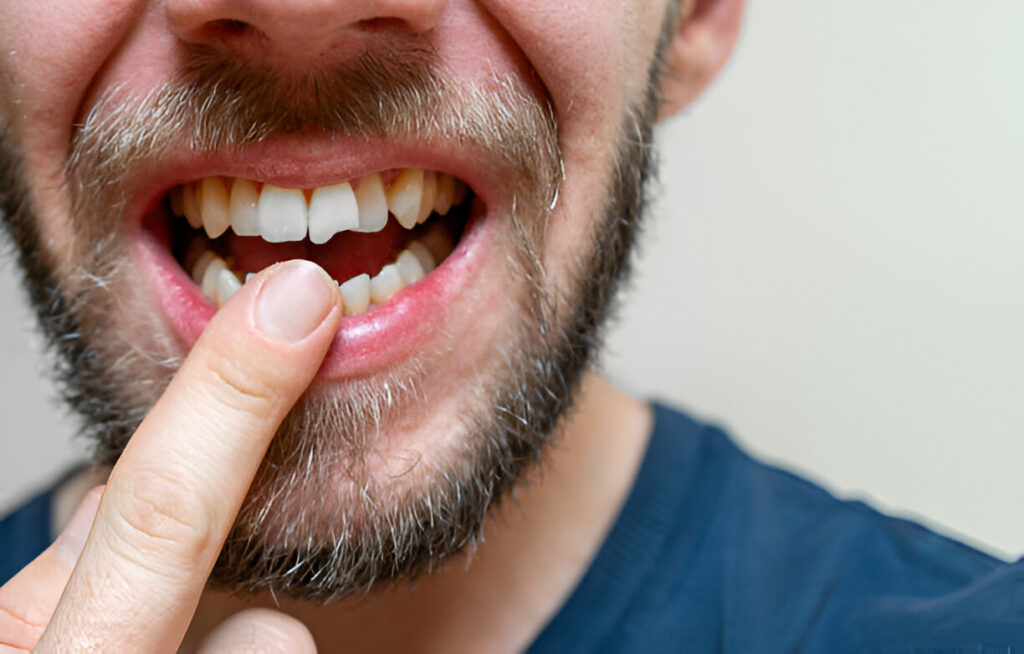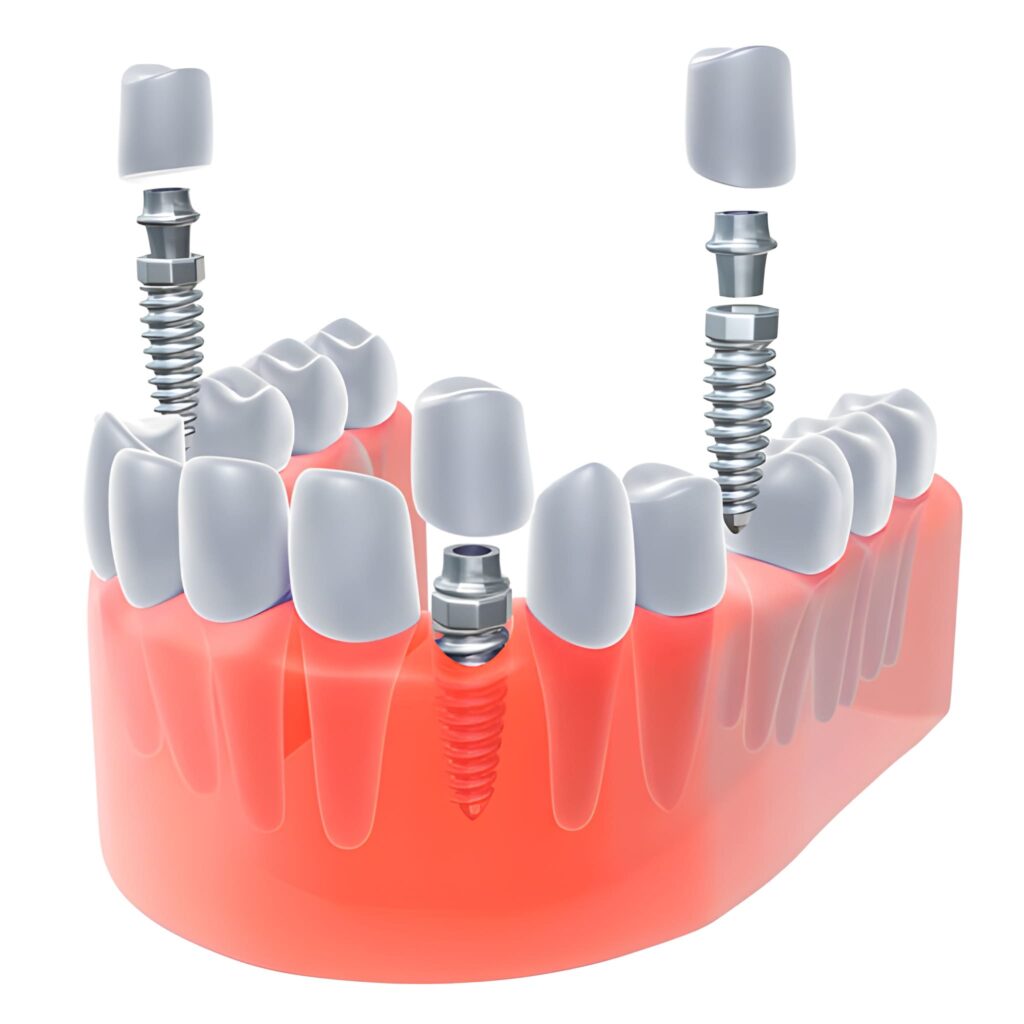Tooth bonding is a simple and painless cosmetic dental treatment. It fixes minor damage such as chips, cracks, or gaps in your teeth. A tooth-coloured resin is applied to the damaged area, shaped, and then hardened with a special light. This makes the tooth look whole again.
Bonding is quick, effective, and affordable. It is most often used on the front teeth, where appearance matters the most. Many people choose bonding to fix a small chip in a front tooth.
Can a Small Chip Be Bonded?
Yes, bonding is a great option for repairing a small chip in a front tooth. Dentists regularly use this treatment to restore chipped teeth, especially those visible when you smile. The resin used in bonding blends well with your natural tooth colour, making it hard to spot.
A small chip may seem like a minor issue, but leaving it untreated can cause more problems. It may make the tooth weaker or lead to more damage over time. Bonding not only improves the look of your tooth but also helps protect it from further wear.
Can You Put Bonding on Front Teeth?
How Does the Bonding Process Work?
The process is simple and usually takes just 30 to 60 minutes. Here’s what happens:
- Preparation – The dentist gently roughens the surface of the tooth and applies a special liquid to help the bonding material stick.
- Application – A tooth-coloured resin is applied to the chipped area.
- Shaping – The dentist shapes the resin to match the rest of the tooth.
- Hardening – A curing light is used to harden the resin.
- Polishing – The dentist polishes the tooth so it looks smooth and natural.
The whole procedure is pain-free and doesn’t usually require anaesthesia.
Is Bonding Safe and Long-Lasting?
Yes, bonding is completely safe. The material used is gentle on your teeth and gums. There’s no need to remove any part of your healthy tooth to apply it.
Bonding can last for several years. On average, it stays in place for 3 to 10 years, depending on your habits. If you take care of your teeth well, the bonding will last longer.
However, bonded teeth are not as strong as natural teeth or crowns. Biting on hard foods, like ice or pens, can chip the resin. If the bonding breaks, it can be repaired easily.
What Is Better – Veneers or Composite Bonding?
What Are the Benefits of Tooth Bonding?
Tooth bonding offers many advantages, especially for small chips in the front teeth:
- Quick and easy – The entire treatment can be done in one visit.
- Cost-effective – It’s usually cheaper than veneers or crowns.
- Natural look – The resin matches your tooth colour.
- No pain – No drilling or injections are needed.
- Low risk – It does not harm your natural tooth.
These benefits make bonding a popular choice for people who want fast and affordable cosmetic fixes.
Are There Any Drawbacks?
While bonding has many pros, it’s not perfect for everyone. The resin used is not as strong or stain-resistant as other materials like porcelain. This means it can discolour over time, especially if you smoke or drink a lot of coffee, tea, or red wine.
Also, bonding may not be suitable for large breaks or major damage. In those cases, your dentist might suggest a crown or veneer instead.
Can Composite Bonding Be Whitened?
How to Take Care of a Bonded Tooth
Taking care of your bonded tooth is simple. You just need to follow normal dental hygiene:
- Brush twice daily with a soft-bristled toothbrush.
- Floss once a day.
- Avoid biting on hard items like pens or ice.
- Don’t open packages with your teeth.
- Visit your dentist regularly for check-ups.
Also, try to limit drinks that can stain the resin, like coffee, tea, and red wine. If you smoke, consider quitting to keep your smile bright.
When Should You See a Dentist
If you chip a front tooth, book a dental appointment as soon as you can. Even if the chip is small, it’s better to get it checked. A dentist will examine the damage and tell you the best treatment option. In most cases, bonding is the quickest and easiest fix.
If you already have bonding and it breaks or looks worn, your dentist can repair or replace it.
Who Cannot Get Composite Bonding?
Final Thoughts
Yes, you absolutely can bond a small chip in a front tooth. In fact, bonding is one of the best solutions for minor damage like this. It’s quick, safe, and gives natural-looking results. If you’ve chipped a tooth and want your smile back, speak to your dentist about bonding today.
Fix Your Chipped Tooth at Cove Dental and Implant Centre
At Cove Dental and Implant Centre, we specialise in natural-looking tooth bonding to repair small chips and restore your smile. Our friendly and experienced team uses the latest materials to ensure seamless results, all in just one visit.
Book your consultation today and let us help you smile with confidence again.
📍 Located in the heart of Aberdeen
📞 Get in touch now to schedule your appointment
Book Composite Bonding at Cove Dental and Implant Centre in Aberdeen.
Book your consultation today!
Frequently Asked Questions
Can bonding fix a chipped front tooth permanently?
Bonding offers a long-term solution but is not permanent. Over time, the resin may wear down or discolour, but it can be repaired or replaced easily by your dentist.
Is bonding painful?
No, bonding is not painful. The procedure is minimally invasive, requires no drilling or anaesthesia in most cases, and is completed comfortably in one sitting.
Will the bonding match my tooth colour?
Yes. The dentist selects a resin shade that closely matches your natural tooth colour, ensuring a seamless and natural look, especially on front teeth.
How do I care for a bonded tooth?
Brush twice a day, floss daily, and avoid biting hard objects. Minimise staining foods and drinks, and visit your dentist for regular check-ups to maintain the bonded tooth.
Can bonded teeth be whitened?
No, bonded resin does not respond to teeth whitening. If you plan to whiten your teeth, do it before bonding so the resin can be matched to your new tooth shade.





